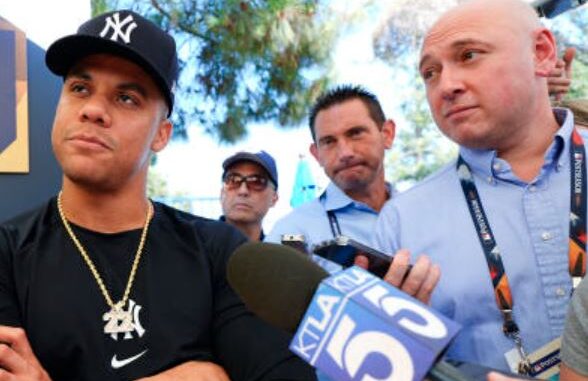
The baseball world was rocked when Juan Soto secured a record-shattering $765 million contract, a deal that not only cements his status as one of the highest-paid athletes in history but also reignites a heated debate: Has Major League Baseball’s spending finally spiraled out of control?

Soto’s staggering contract, which surpasses the likes of Shohei Ohtani’s $700 million deal, marks yet another milestone in the relentless surge of player salaries. Once unthinkable, billion-dollar contracts now seem like the inevitable next step, leaving many questioning where the spending spree will end.
For fans, Soto’s payday is a testament to his elite talent and marketability. The 25-year-old superstar has consistently delivered at the plate, combining power, plate discipline, and clutch performances that make him a franchise cornerstone. But even with his undeniable skills, does any player truly justify such an astronomical price tag?
Critics argue that MLB’s unchecked financial arms race is damaging the sport. Small-market teams, already struggling to compete with deep-pocketed franchises, are further marginalized. The competitive balance issue looms larger than ever, with only a handful of teams realistically able to afford generational talents like Soto. Meanwhile, skyrocketing ticket prices and expensive streaming packages force fans to shoulder the cost of these megadeals.
On the other hand, players and their advocates see these contracts as fair compensation in an industry that generates billions. The revenue pie continues to grow, and if owners can afford to pay such sums, why shouldn’t players—who are the product—reap the benefits?
MLB’s luxury tax system was designed to curb excessive spending, but with record-breaking media rights deals and growing team valuations, it has failed to prevent clubs from handing out mind-boggling sums. Unless structural changes are made—such as a hard salary cap—this trend will only continue.
So, where does it stop? If Soto is worth $765 million today, what will the next generational talent command? One billion dollars? In an era where money rules baseball, that once-outrageous figure may not be far off.

Leave a Reply